
Lizards Around Las Vegas, Wildlife Around Las Vegas
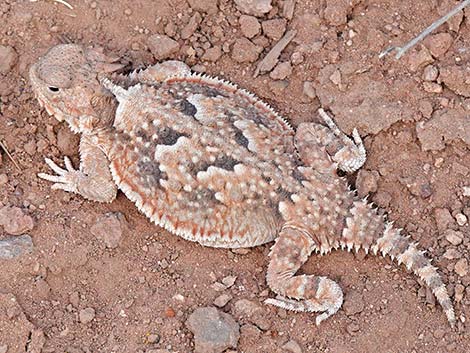 Desert Horned Lizard adult |
General Description: Southern Desert Horned Lizards (Phrynosoma platyrhinos calidiarum) are small to medium-sized (3 to 5 in.) lizards with broad, flattened bodies and a row of horns on the back of the head. With a toad-like body form, these lizards are often called “horny toads.” This is the only Horned Lizard in southern Nevada. Taxonomy: Phrynosomatid Lizard Family (Phrynosomatidae). Technical Description: Body length to almost 4 in.; tail about 1 in. Body flat; edge of sides with one row of small, fringed scales. Head fringed with row of horns. Some dorsal scales sharp-pointed. Throat with one row of slightly enlarged scales on each side. Dorsum blotched with a pattern and color resembling the background; base color beige, tan, or reddish; darker blotches form crescents. Ventral color cream. Snout blunt. |
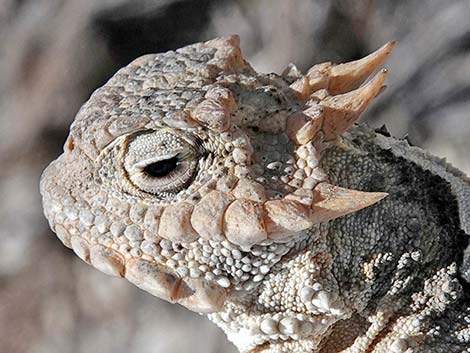 Long head spines |
There are two subspecies: southern and northern, which are separated by geography, horn size, and tail shape:
One major reference discounts the usefulness of horn size, suggesting instead that they should be identified by geography alone. |
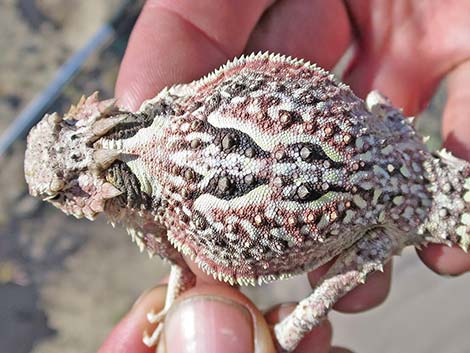 Puffed up trying to look too big to eat |
Diet: These lizards eat ants; occasionally eating other slow-moving insects, beetles, spiders, and some plant material. Often found near anthills where they sit and wait for passing ants. Habitat: These lizards occur in most low-desert habitats, especially Creosote-Bursage Flats and Mojave Desert Scrub habitat types with sandy areas in the south. Typically found among woody shrubs, cacti, and yucca on sandy flats, alluvial fans, washes, and dunes below about 6,500 ft. Also found in Mesquite-Catclaw areas and salt desert scrub habitats. Range: The species occurs from southeastern Oregon and southwestern Idaho south to northwestern Mexico. The southern subspecies occurs in the Mojave and Sonoran deserts (south edge of the Nevada Test Site) southward. |
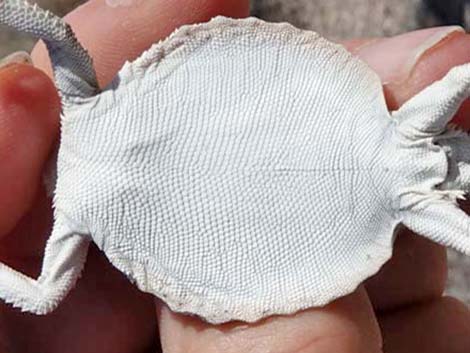 Unmarked, white belly |
Breeding: Mate during spring; lay 1 or 2 clutches of 2 to 16 eggs in early summer; hatch in late summer. Similar Species: There are no other species of horned lizards in central or southern Nevada. Comments: Although Horned Lizards are gentle, they can hiss, threaten to bite, and puff up with air to look bigger and fiercer. In areas with soft sand, they will shake themselves vigorously, throwing sand over their backs and leaving only their head exposed so they can hide from predators while waiting for passing ants. Often called “horny toads,” these lizards are favored as pets. However, they rarely survive in captivity because of difficulties in adequately providing their specialized diet of ants. |
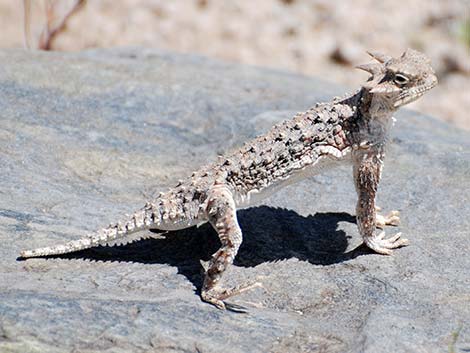 Desert Horned Lizard adult |
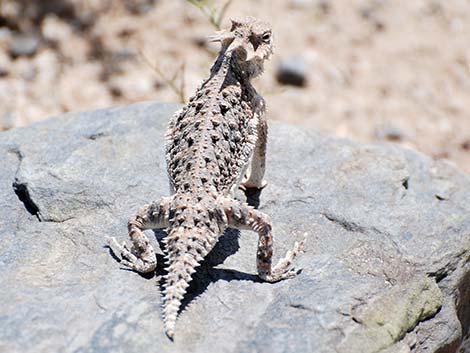 Desert Horned Lizard adult |
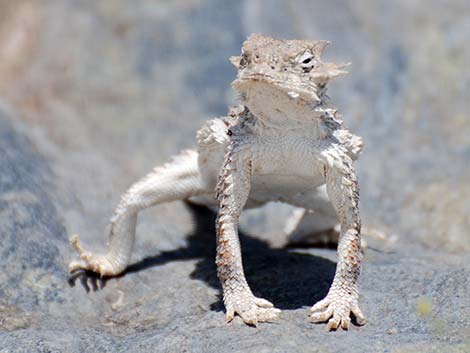 Desert Horned Lizard adult |
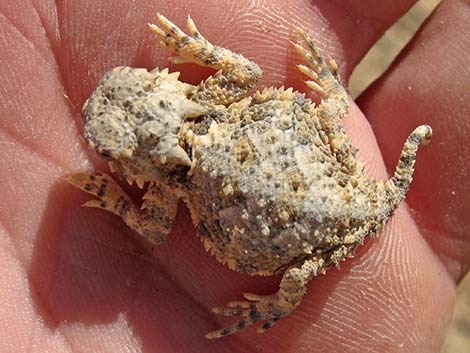 Desert Horned Lizard hatchling |
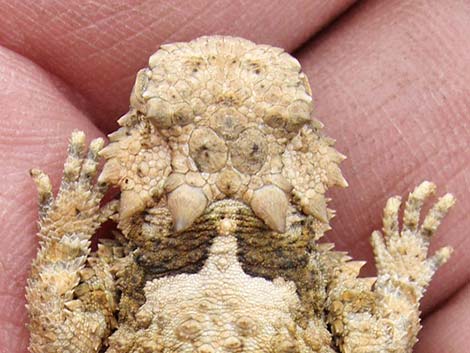 Desert Horned Lizard adult |
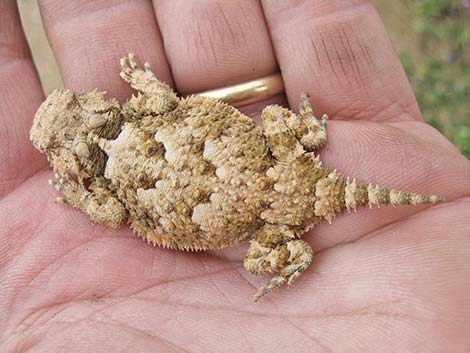 Desert Horned Lizard adult (Mojave Preserve) |
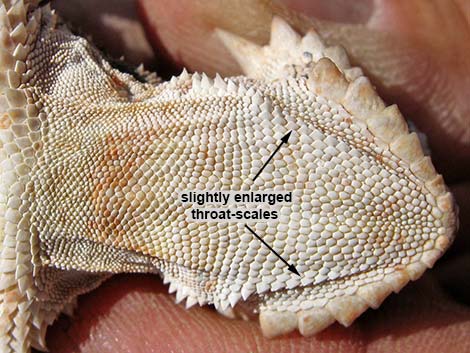 Desert Horned Lizard: slightly enlarged throat-scales |
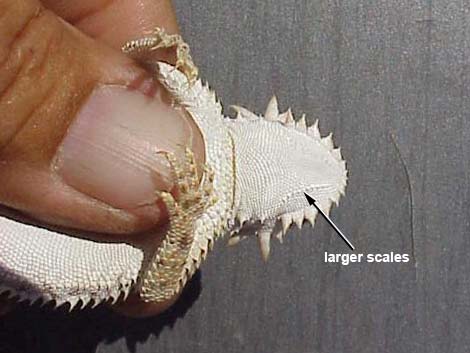 Flat-tailed Horned Lizard (Phrynosoma mcallii): enlarged throat scales |
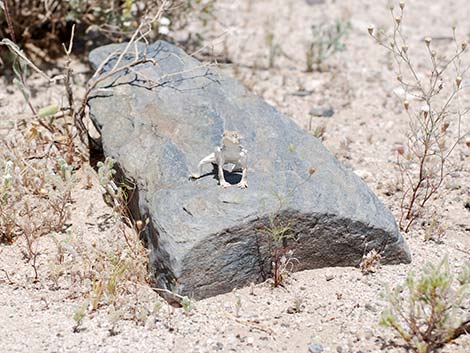 Desert Horned Lizard adult |
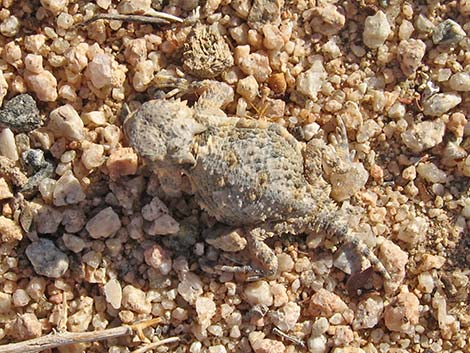 Desert Horned Lizard hatchling blending in with the desert soil |
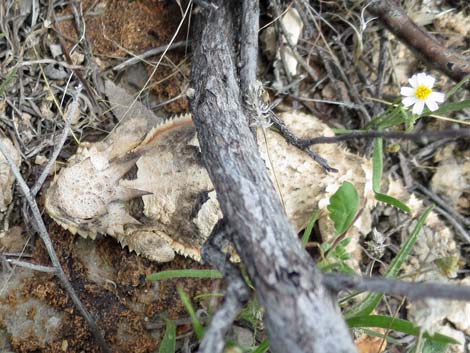 Desert Horned Lizard not-quite blending with the background |
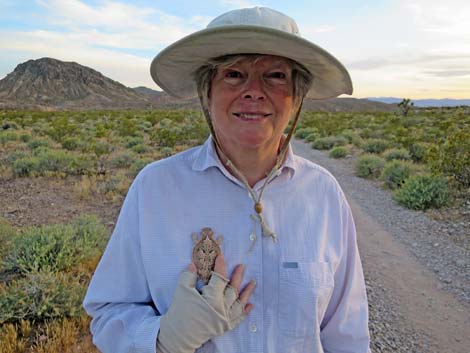 Catching a Desert Horned Lizard: a badge of honor? |
Note: All distances, elevations, and other facts are approximate.
![]() ; Last updated 231214
; Last updated 231214
| Lizards Around Las Vegas | Wildlife Around Las Vegas | Glossary | Copyright, Conditions, Disclaimer | Home |